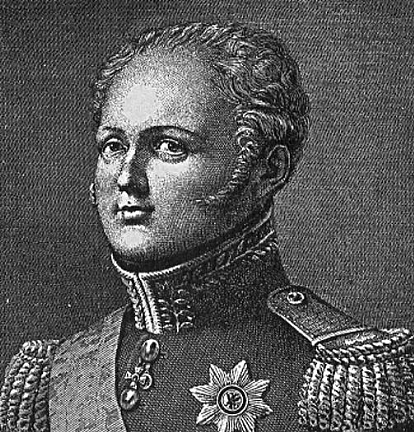 |
 |
 |
 |

Catherine had asked Diderot to serve as Alexander's tutor, but he declined the offer. The Swiss educator Frédéric-César La Harpe, however, accepted, and Alexander received an unusually enlightened education.
Although Catherine had intended for Alexander to become Tsar upon her death rather than her sone Paul (Pavel) I, her plan was never made public, and her son succeeded her to the throne. He was assassinated, however, apparently with Alexander's approval, in 1801, and Alexander became emperor on the following day. He was a popular ruler, well liked for his liberal ideas and concern for the peasantry. He instituted an extensive system of public education, but in spite of a distaste for the institution of serfdom, was unable to abolish it. His foreign policy was moderate, and attempted to maintain good relations with both France and Britain. But in 1804 he declared war on Napoleon -- not, as he was careful to note, on the French people. Alexander at various times sided with and against the French armies under Napoleon, but the French invasion of Russia in 1812 galvanized Russian opposition to the Revolutionary forces. In the end he worked with the allies to defeat Napoleon and to formalize his defeat in the Congress of Vienna in 1815.